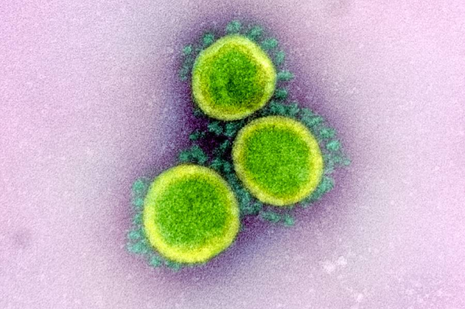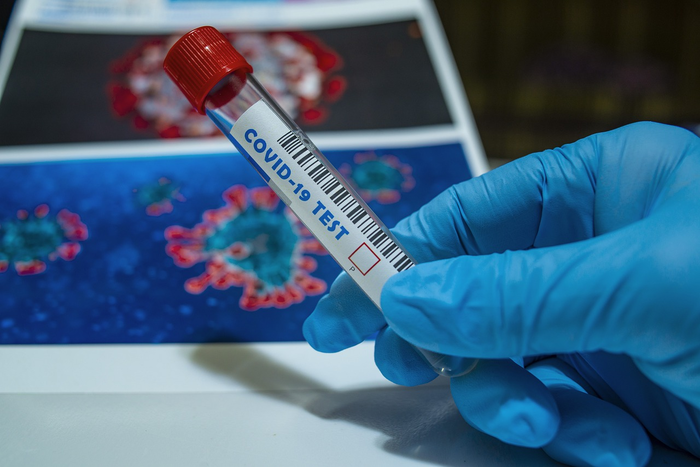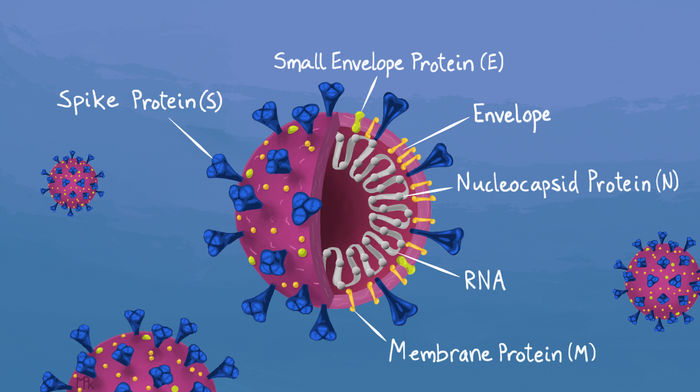New report tracks Michaelmas Covid-19 spread among Cambridge students
The report concludes that a small number of outbreaks led to most infections at the University, but researchers found little evidence of transmission between students and the local Cambridge community

Researchers from the University of Cambridge’s Covid-19 screening programme and the COVID-19 Genomics UK Consortium (COG-UK) have released an interim report showing that a few transmission events early on likely accounted for most of the positive cases at the University last Michaelmas term.
The report also concludes that there is “little evidence of substantial transmission” between students and the local community in Cambridge.
The report analyses Covid-19 transmission amongst students during the first five weeks of Michaelmas term by identifying patterns linking individual cases.
It concludes that the regular screening programme, together with the University’s containment measures and responsible student behaviour, helped limit the spread of the virus both within the University and to the wider community.
Researchers investigated virus samples from students identified through the University’s testing programmes and compared them with samples from residents in the local Cambridge community.
They sequenced the genetic code of viral samples isolated from individuals in order to better understand the viral spread.
Viral genetic code acquires mutations when a virus spreads. Through comparing the genetic code of samples from infected individuals, researchers can plot a genetic “family tree” to determine whether two cases are correlated.
More than 12,000 students (over 80% of eligible students) who live in college accommodation consented to participate in the asymptomatic screening programme in Michaelmas term.
The analysis reveals that 90% of positive cases were restricted to three lineages (related viral genomes). According to the report, this suggests that a small number of outbreaks at the start of the term lead to most infections at the University.
The largest cluster, which included 139 cases by week five of the term (135 students, one staff member and three individuals from the local Cambridge community) appeared to be the source of the majority of transmissions among the University population.
Those 135 students were from a number of colleges, courses and years of study. There is little evidence that these cases can be traced back to one single event which led to the dispersion among different colleges, courses and cohorts.
“It appears that a few instances of the virus being introduced to the University account[ed] for the majority of cases of established transmission,” said Dr Dinesh Aggarwal, a researcher at the University's Department of Medicine and a member of COG-UK.
“This suggests to us that in most cases, when a virus was introduced, students behaving responsibly and complying with infection control measures helped stop the virus in its tracks,” he continued.
Outbreaks that were primarily confined within colleges were successfully contained, indicating that colleges’ preventive measures were effective in restraining the viral spread. The report emphasises “the importance of outbreak containment” since “early outbreaks appear to have halted when confined within [c]olleges”.
Within one of the two largest intra-college clusters (32 cases by week three of the term), half of the students identified were asymptomatic. The report used this to highlight the importance of asymptomatic testing in identifying infections.
Dr Ben Warne, a Clinical Research Fellow and one of the leads on the University’s asymptomatic screening programme, said: “It’s clear we need to better understand how the virus spreads between students on different courses and at different [c]olleges. Once established, these widely-distributed outbreaks are more challenging to control, potentially resulting in continued spread.”
Professor Patrick Maxwell, Regius Professor of Physic at the University of Cambridge, further put forward that the screening programme will be important in light of an emerging variant which is more transmissible within the community.
“Asymptomatic screening can help identify cases of infection early, including where students are unaware of infection, and inform infection control measures. This has never been more urgent, with the emergence of the new variant,” said Maxwell.
The University’s asymptomatic screening programme restarted on 11th January with additional individual tests available for students both in college accommodation and private accommodation. The pooled screening programme restarted on 18th January.
 News / Cambridge study finds students learn better with notes than AI13 December 2025
News / Cambridge study finds students learn better with notes than AI13 December 2025 Features / Should I stay or should I go? Cambridge students and alumni reflect on how their memories stay with them15 December 2025
Features / Should I stay or should I go? Cambridge students and alumni reflect on how their memories stay with them15 December 2025 News / Uni Scout and Guide Club affirms trans inclusion 12 December 2025
News / Uni Scout and Guide Club affirms trans inclusion 12 December 2025 Comment / The magic of an eight-week term15 December 2025
Comment / The magic of an eight-week term15 December 2025 News / Cambridge Vet School gets lifeline year to stay accredited28 November 2025
News / Cambridge Vet School gets lifeline year to stay accredited28 November 2025










